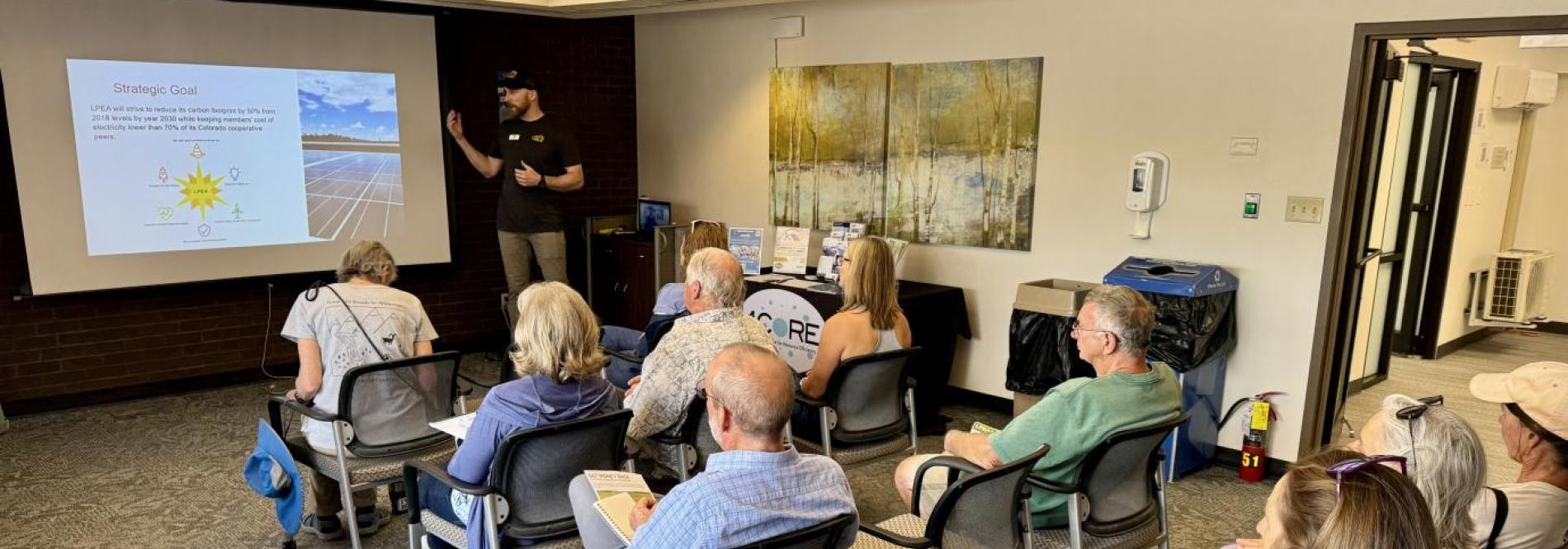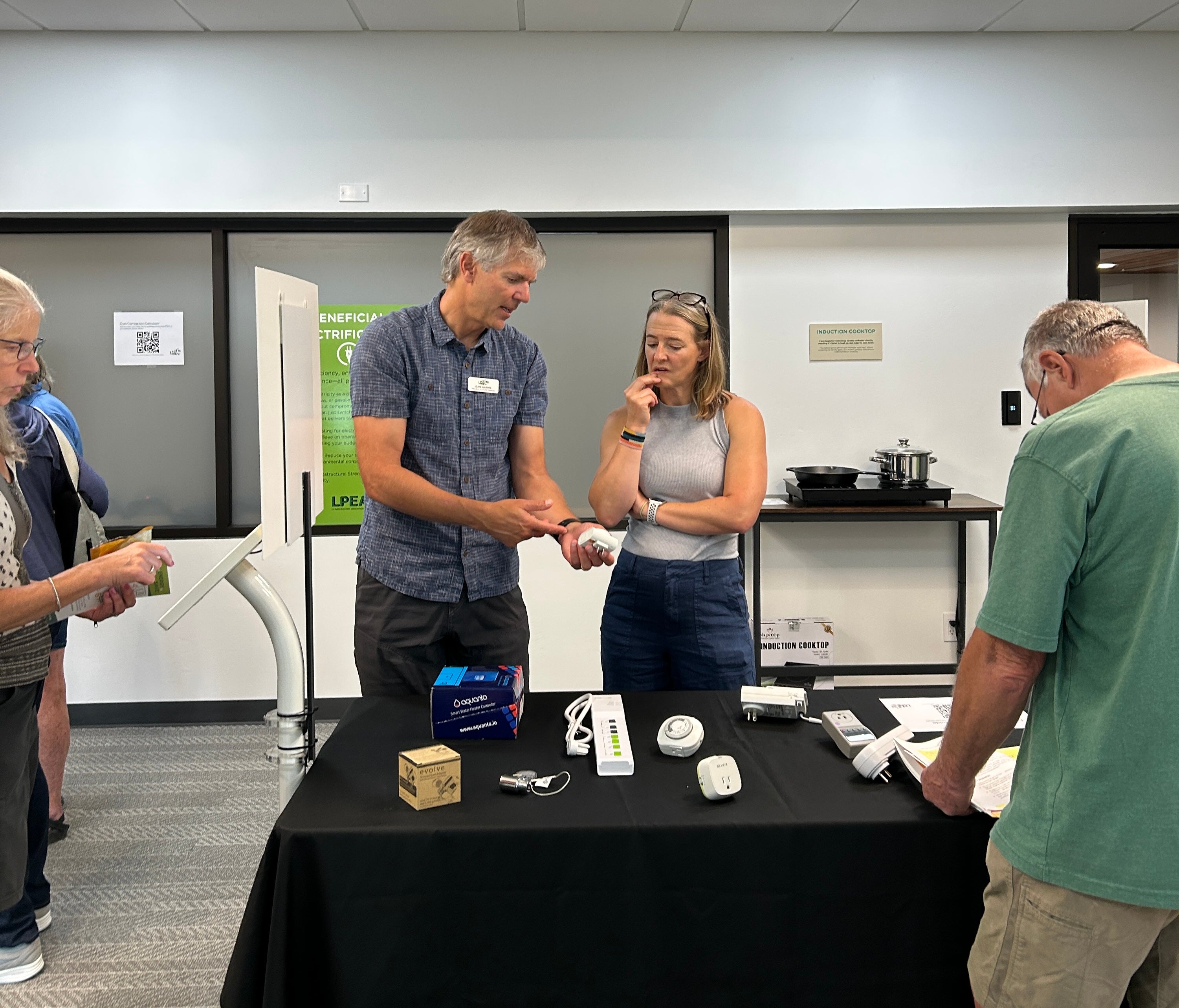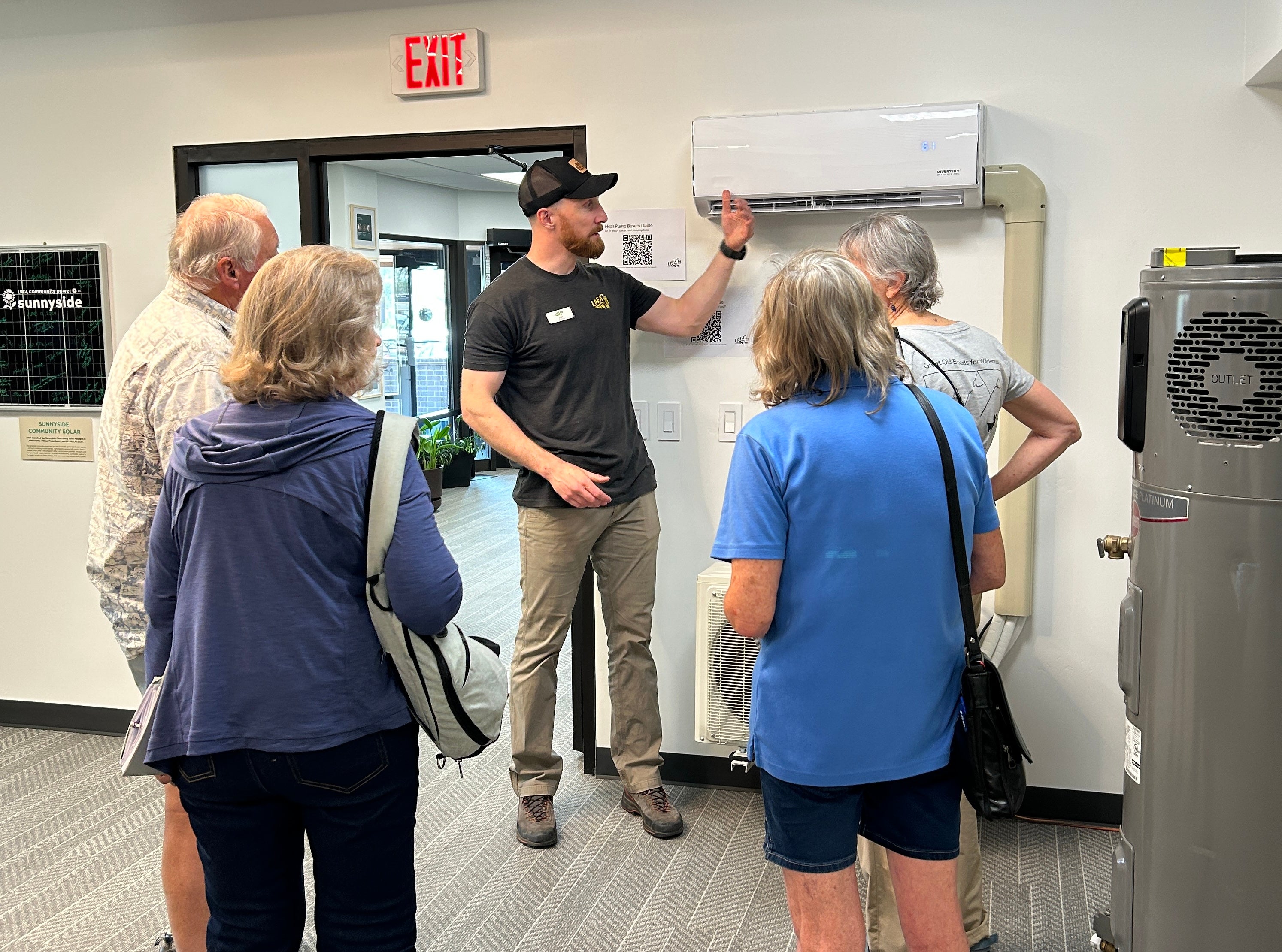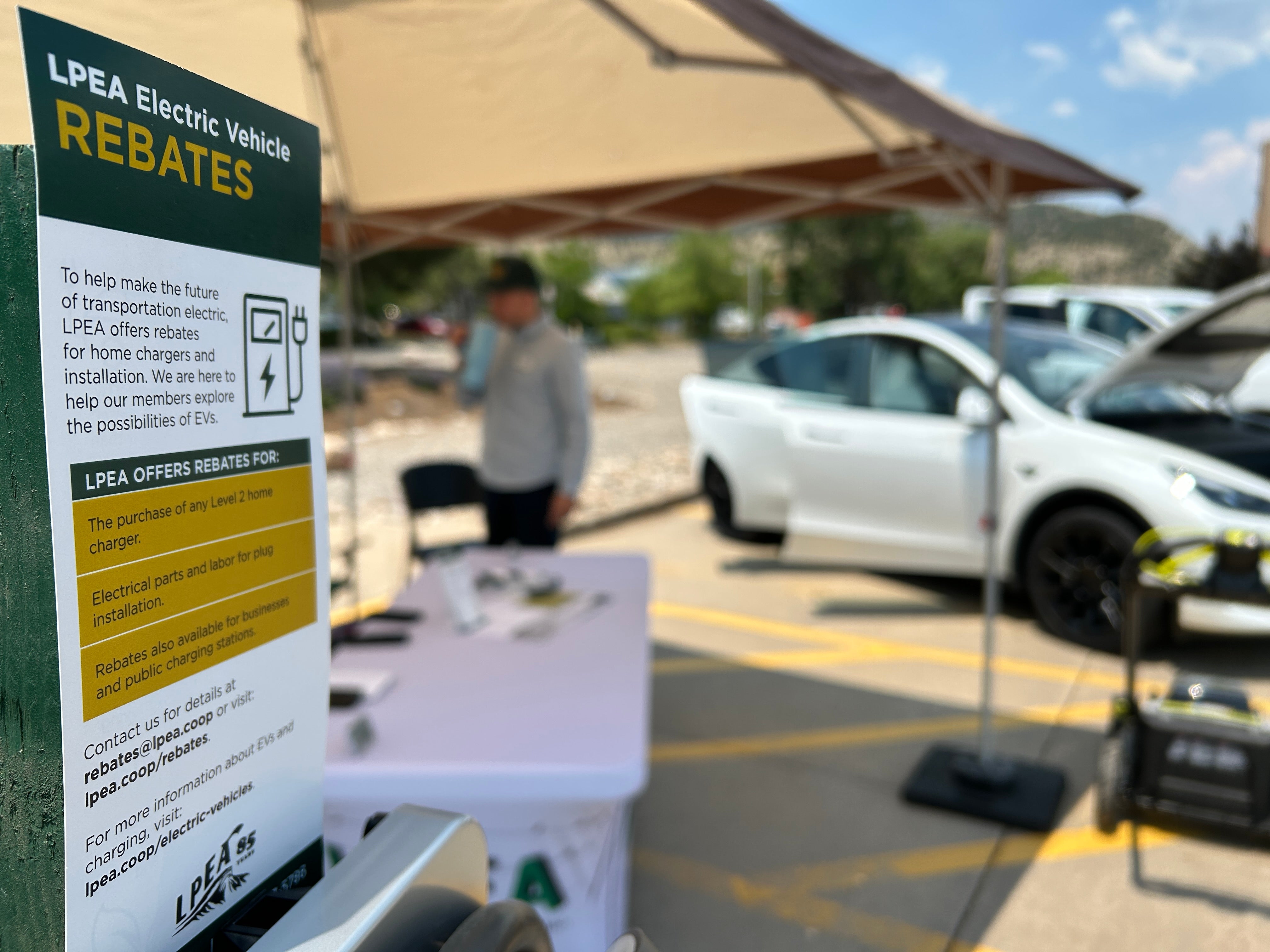
We are so glad we are able to offer opportunities like our Beneficial Electrification Open House events for our members. We love getting some face-to-face time to answer your questions and engage in meaningful conversations about the future of electricity.
Attendees enjoyed live demos of heat pumps, heat pump water heaters, battery storage systems, induction cooktops and energy monitoring systems. We also shared a presentation covering a step-by-step approach to converting a home to all-electric as well as the importance of energy audits and weatherization in the process
Our Grid Innovations and Programs team was on hand to answer questions from members and we enjoyed some great discussions around panel upgrades, service upgrades, and smart panels.

In case you weren't able to attend, here are some of the most common questions we saw. Maybe one or a few of these were your questions too!
If there is something you are still wondering about, please don't hesitate to reach out to us at renewables@lpea.coop and someone from our team will be happy to answer your questions.
Frequently Asked Questions about Beneficial Electrification
What is an all-electric home?
The idea is that we can replace equipment that burns fossil fuels with electric equipment that saves the homeowner money, benefits the environment, and works with our grid to promote resiliency. An all-electric home replaces or is built around electric equipment like heat pumps for space heating, heat pump water heaters, induction cooktops, smart thermostats, electric clothes dryers, and electric vehicle chargers.
How can I convert my home to go all-electric?
The process really starts with an energy audit; this gives a good picture of where things can be improved, especially the building envelope.
From there it’s a matter of creating a plan or roadmap for replacing equipment and appliances. Once that’s complete the homeowner should find contractors to work with, complete the installation, and apply for incentives.
What is a heat pump/heat pump water heater/induction cooktop?
Heat pumps for space heating/cooling and hot water use a phase change in a refrigerant to move heat, rather than creating heat. This allows them to operate at very high efficiencies, and in the case of heat pumps for space heating and cooling, a single system can reverse the process to provide both heating in the winter, and cooling in the summer.
Why is an energy audit and weatherization important when going all-electric?
An energy audit gives a good picture of where things need to be improved, and can help to create a roadmap to all-electric conversion.
The weatherization measures suggested by the audit can make the home more efficient, helping to lower the home's heating and cooling load. This can save money in the long term, but can also mean a smaller heat pump system is needed, which results in savings up front as well.
How do home battery storage systems work?
Battery storage systems can store energy from a rooftop solar system, or charge directly from the grid. This provides the home with backup in case of a power outage, and can also help to offset peak power usage, which can lower bills.
How does EV charging work?
A level 2 EV charger is a great way to charge your vehicle at home. Plug your vehicle in when you get home and within a short time it's fully charged. No more trips to the gas station!
What funding is available to help pay for an all-electric conversion?
LPEA offers rebates on most electrical equipment and appliances. Additionally, On Bill Financing is available to help with solar and electrification projects. For the remainder of the year the federal government is offering tax credits for electric equipment and appliances as well.


